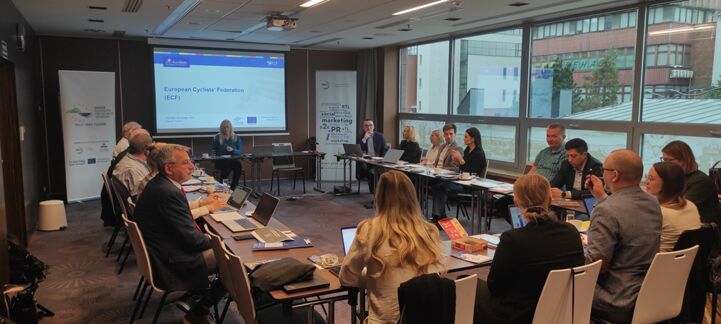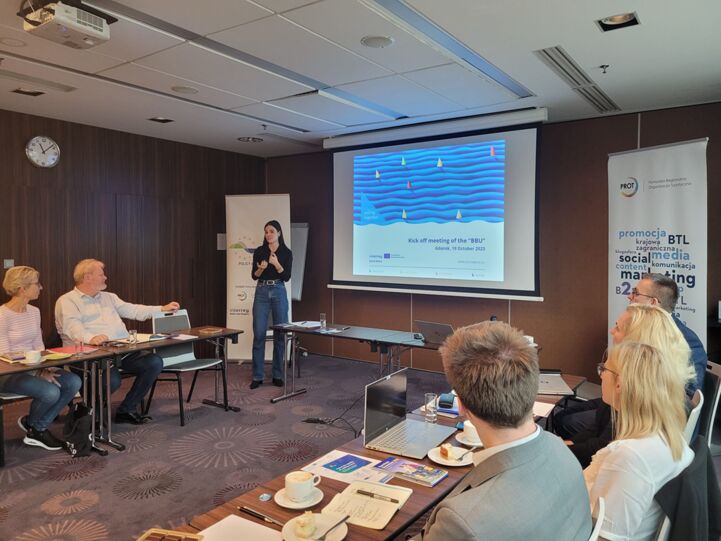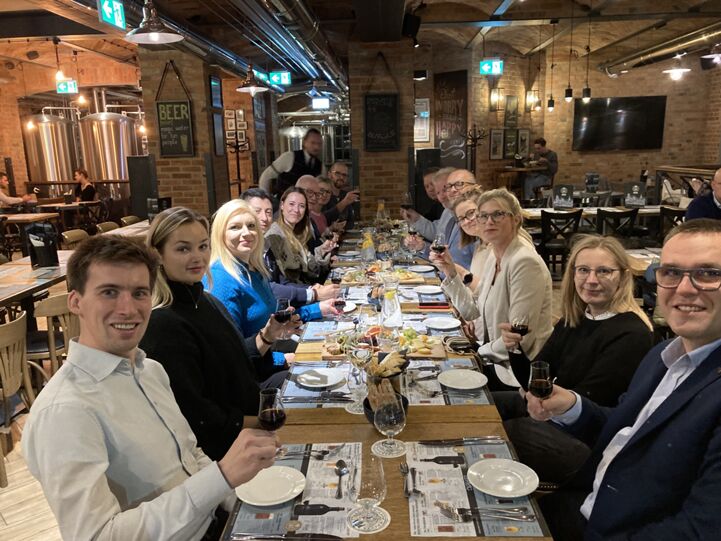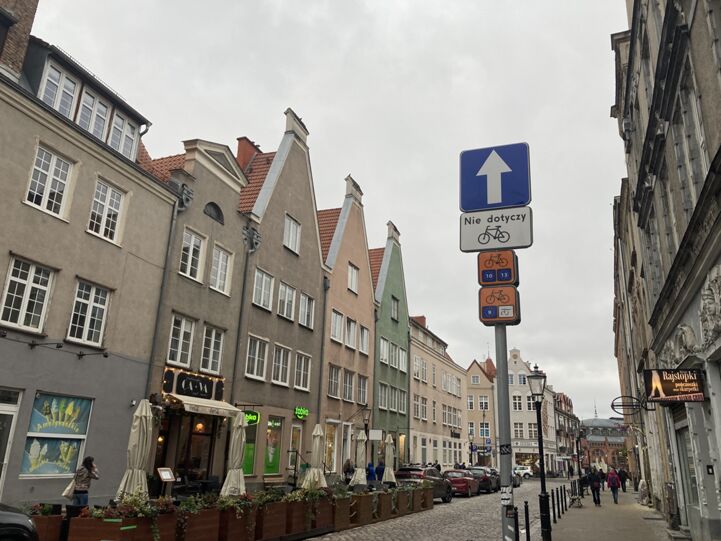A new project to develop EuroVelo 10 – Baltic Sea Cycle Route kicks off in Gdansk!
The Biking South Baltic project (BSB) ran from 2017 to 2019 and gathered partners from Poland, Germany and Denmark and allowed to gain better knowledge of EuroVelo 10 – Baltic Sea Cycle Route status (surveying the route in those countries using the European Certification Standard methodology) and create a long-term strategy for the whole route. Following this project, it became clear how a new project could help develop the route further, building on this experience.
Partners from the BSB project and new ones joined forces to establish enlarged transnational cooperation between 6 countries: Poland (Pomorskie Tourist Board – Lead Partners, and Westpomerania Regional Tourism Organisation), Denmark (Visit Lolland-Falster and Dansk Cykelturisme – the Danish National EuroVelo Coordination Centre), Lithuania (Klaipeda Region Association), Sweden (Region Blekinge and Cykelfrämjandet – the Swedish Cycling Advocacy Organisation), Germany (City of Barth) as well as Belgium as ECF is based in Brussels.
Baltic Biking UPGRADE’s main objective is to assist SMEs in the creation of bicycle-friendly standards, services and offers, as stakeholders lack knowledge and a transnational business and partnership network to develop attractive bookable offers for the national and foreign markets.

A promising kick-off meeting…
The first partner meeting was held in Gdansk, Poland, on 19 and 20 October 2023 and gathered 20 representatives of the different organisations providing the opportunity for in-person encounters and convivial reunion of former partners. Led by the dynamic Pomorskie Tourist Board, the Project Lead Partner, the event began with a warm welcome, setting the stage for a series of insightful presentations by the diverse group of partners introducing their organisations and teams.
Svetlana Korniushina, the Interreg South Baltic Programme Joint Secretariat Project Officer, added a practical touch to the proceedings by sharing essential information on project implementation, including reporting rules and budget changes. Right after, each work package leader took the floor to unveil more information on planned activities and draft timelines, outlining a roadmap for action over the next three years.

The five work packages encapsulate the comprehensive strategy of BBU, addressing challenges head-on and unlocking the full potential of the Baltic Sea Cycle Route. The first Work Package aims at ensuring smooth project coordination, whereas Work Package 2 focuses on deploying bicycle-friendly services along the route, establishing common standards to support SMEs.
Work Package 3 is dedicated to creating new enticing tours and offers for cycling tourists along EuroVelo 10. ECF will be involved in the fourth Work Package, which aims at enhancing joint communication, with the creation of a common marketing strategy, a digital handbook, organisation of press familiarisation trips, and collaboration with influencers. The last work package, but certainly not least, is led by ECF and is centred on governance and strengthening the management and cooperation of EuroVelo 10, to ensure a sustainable and enduring impact of the project.
… and an immersive Polish cultural experience
The gathering was not just about business; it was also an immersive experience in the Polish culture that included a visit to the GP4 Restaurant, renowned for brewing authentic Polish beers. A small brewery tour unfolded, showcasing the art of beer-making, and the project partners had the pleasure of trying six different beers. The evening continued with a dinner and a guided tour of Gdansk city centre, unravelling the city’s fascinating Hanseatic history and its German, Flemish, and Dutch influences.

Promising pilot activities and synergies with other EU co-funded projects
Day two delved into discussions on the two pilot activities planned in Germany, Denmark and Lithuania. Polish partners of the Westpomeranian Region introduced their brand-new cycling-friendly regional scheme (Miejsce Przyjazne Rowerzystom – meaning Cyclist-Friendly Place) and detailed the plan for a study trip along EuroVelo 10 in Poland for partners and SMEs to experience local cycling-friendly services.
Finally, synergies with two other EU-funded cycling projects – ICTr (EuroVelo 13 – Iron Curtain Trail) and Biking Across Baltic (EuroVelo 10 – Baltic Sea Cycle Route) were explored. Indeed, there is a high potential for common activities and collaboration on many aspects, as ICTr also focuses on strengthening the capacities of SMEs along EuroVelo 13 and on creating a business model for the development of new cycling products. Moreover, EuroVelo 10 and EuroVelo 13 follow the same track from Germany (Lübeck) to Estonia and one of the three cross-border pilot areas of the ICTr project runs from Gdansk to the German Coast, overlapping with EuroVelo 10. On the other hand, the Biking Across Baltic (BAB) project is a smaller 2-year project gathering Finnish, Swedish, Polish and Estonian partners which will lead to harmonised infrastructure development of the Baltic Sea Cycle Route and more promotion of cycling tourism in the region.

The partners will keep on sharing progress thanks to monthly online meetings and will reconvene again in the charming city of Barth, Germany, in February 2024.
As the Baltic Biking Upgrade project gains momentum, ECF looks forward to collaborating with the varied partners and is sure that this project will prove beneficial in developing cycling tourism and EuroVelo 10 in the South Baltic Area.
Author: Alexandra Fournier
